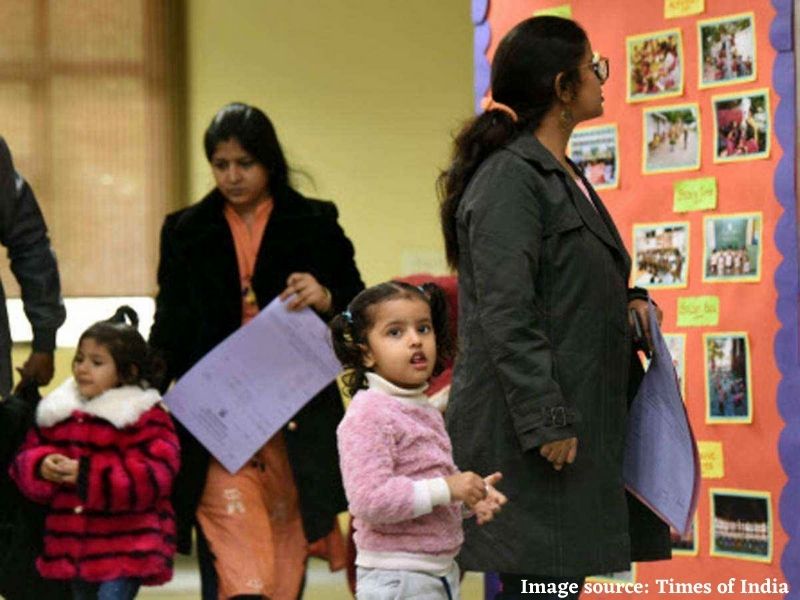A petition has been formally submitted to the Supreme Court, urging a review of its prior decision that declined to instruct the Delhi lieutenant governor to either provide assent to or reject a 2015 bill suggesting the prohibition of screening children for nursery admission. The petitioner, the NGO Social Jurist, asserts the importance of this plea in light of recent Supreme Court rulings expressing disapproval of governors delaying approval for bills passed and readopted by state legislatures.
The review plea contends that recent Supreme Court observations underscore the imperative for state governors to act in accordance with the provisions of Article 200 of the Constitution. Article 200 delineates the procedural steps for a bill passed by the legislative assembly of a state, including the governor’s prerogative to grant consent, withhold assent, reserve the bill for consideration by the President of India, or return the bill for reconsideration by the legislature.
The Supreme Court, on October 13, had dismissed the initial plea from the NGO, emphasizing that it cannot issue a directive to enact a law. The Court stated, “Can there be a mandamus to enact a law? Can we direct the government to introduce the bill? Supreme Court can’t be the panacea for everything.”
Previously, the Delhi High Court had rejected a Public Interest Litigation (PIL) filed by the NGO, asserting its inability to interfere with the legislative procedure and direct the lieutenant governor to either approve the Delhi School Education (Amendment) Bill, 2015, or return it.
The NGO, represented by advocate Ashok Agarwal, has lodged an appeal in the Supreme Court, contending that the child-friendly bill, aimed at prohibiting screening procedures for nursery admission, has been pending between the central and Delhi governments for seven years without justification. The appeal argues that the delay is contrary to public interest and public policy.
While rejecting the PIL, the Delhi High Court had asserted that it was not appropriate for a high court to direct a governor, a constitutional authority, to set a timeframe for matters within his domain. The court stated, “In the considered opinion of this court, even though the bill has been passed by the House, it is always open to the governor to agree or to send the bill back to the House, and this court ought not pass a writ of mandamus directing the governor to act.”
Article 226 empowers a high court to issue writs for the enforcement of fundamental rights and other purposes. The appeal against the high court’s judgment highlights the primary objective of the 2015 bill—to protect children from exploitation and unjust discrimination in nursery admissions in private schools. It underscores that the purpose of the bill has been compromised by the delay and notes that the Delhi government passed the legislation in 2015, aligning with the 2013 decision of the Delhi High Court in response to a PIL filed by NGO Social Jurist.
The 2013 decision urged the government to consider necessary amendments to ensure that children seeking admission to nursery classes benefit from the Right to Education Act. The NGO made a representation to authorities on March 21, 2023, urging the expedited finalization of the bill. However, the response from the Centre on April 11 indicated that the bill was still pending finalization by the two governments.
The appeal contends that over 1.5 lakh admissions occur annually at the nursery level in private schools in Delhi, subjecting children over three years old to screening, contrary to the letter and spirit of the Right to Education Act, 2009. It seeks the court’s direction to expedite the finalization of the bill, which aims to ban screening for admission at the pre-primary level.




























